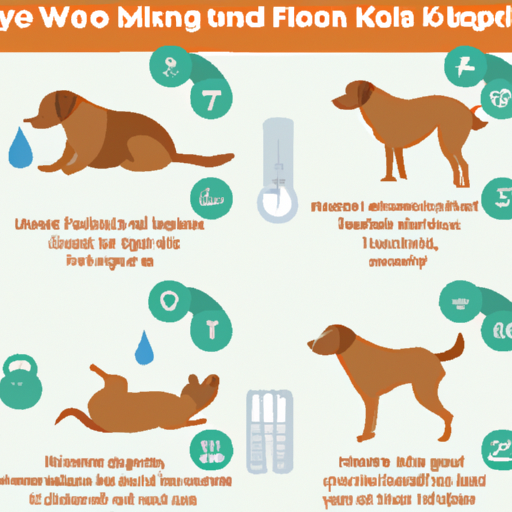As a caregiver, it’s crucial to recognize any changes in your dog’s behavior or health. One serious issue that can affect dogs is kidney failure. This condition can be hard to spot as symptoms often only appear when the disease is quite advanced. Here are some common signs of kidney failure in dogs that you should be aware of.
1. Changes in Urination
One of the first signs of kidney failure in dogs is changes in urination. This can take a few forms:
- Increased Urination: Your dog may start to urinate more frequently. This is because the kidneys are unable to concentrate urine.
- Decreased Urination: Conversely, your dog may urinate less frequently or even stop altogether. This is a more severe sign that the kidneys are failing.
- Urinary Incontinence: Your dog may start having accidents around the house, especially at night.
2. Increased Thirst
When a dog’s kidneys are failing, they may feel extremely thirsty. This is because the kidneys are unable to retain water in the body. As a result, your dog may drink an excessive amount of water to compensate.
3. Loss of Appetite and Weight Loss
Dogs with kidney failure often lose their appetite and may start losing weight. This is due to the build-up of toxins in the blood that the kidneys are unable to filter out. The presence of these toxins can make your dog feel nauseated and uninterested in food.
| Signs of Loss of Appetite | Signs of Weight Loss |
|---|---|
| Avoiding food or showing less interest in food | Visible ribs, hip bones, or spine |
| Eating less than usual | Loose, hanging skin |
| Leaving food in the bowl | Poor coat appearance |
4. Lethargy and Depression
As the kidneys fail to filter out toxins from the blood, your dog may start to feel lethargic and depressed. They may sleep more than usual, show less interest in activities they used to enjoy, and generally seem “down”.
5. Vomiting and Diarrhea
With kidney failure, toxins build up in the bloodstream and can lead to gastrointestinal symptoms like vomiting and diarrhea. These symptoms can further exacerbate weight loss and dehydration.
FAQ
Q: What can cause kidney failure in dogs?
A: Kidney failure in dogs can be caused by a variety of things including aging, infections, certain medications, and genetic predispositions.
Q: Can a dog recover from kidney failure?
A: While there is no cure for chronic kidney failure, with early detection and appropriate treatment, it’s possible to manage the symptoms and slow the progression of the disease.
Q: Is kidney failure painful for dogs?
A: Kidney failure itself doesn’t cause pain, but associated symptoms like urinary tract infections can cause discomfort.
Q: What should I do if I suspect my dog has kidney failure?
A: If you notice any of the signs discussed, take your dog to the vet immediately. They can run tests to confirm the diagnosis and suggest appropriate treatment options.
Remember, as a caregiver, your watchful eye and quick action could make all the difference in your furry friend’s health. Always consult with a veterinarian if you are concerned about your dog’s wellbeing.



